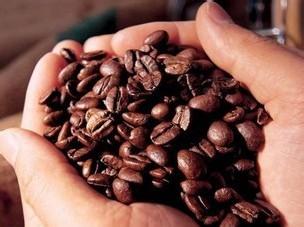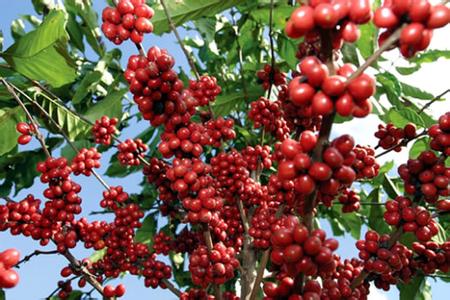More than 85% of the coffee farms in Arusha, Tanzania, are grown by small farmers.
Coffee exports from Tanzania (Tanzania) play an important role in the whole national economy. In the past, the coffee industry in Tanzania has been dominated by manor cultivation, but now more than 85% are grown by small farmers. Many small farmers form cooperative organizations, the most important of which is the Kilimanjaro Cooperative Alliance (Kilimanjaro Cooperative Union, referred to as KNCU). Tanzanian coffee is sold by the Tanzanian Coffee Management Council (Tanzanian Coffee Marketing Board, TCMB) to private exporters by auction. In the 1980s, most coffee sales in Tanzania shifted from auctions to being sold directly to the Tanzania Coffee Management Committee.
Usually its acidity is relatively mild, after the entrance, it evenly stimulates the taste buds in the middle and both sides of the back of the tongue, feeling a bit like the sour taste of tomato or soda. After moderate or more moderate baking, it has a strong aroma, then grind it into a fine powder, add boiling water to soak a pot, call friends to sit around and taste, suddenly feel fragrant and tongued.
The characteristics of Tanzanian coffee:
Flavor: full-bodied and refreshing, with lower acidity than Kenyan coffee, pure flavor and aroma
Suggested baking method: medium baking
★★: good
Tanzania is also often compared with its nearest neighbor Kenya. It is said that the earliest Arabica coffee in Tanzania was introduced by Christians from Kenya and is similar to Kenya in flavor characteristics. With grapefruit aromas and soft and bright acidity. However, because the economic conditions of Tanzania are worse than those of Kenya, the production conditions are poor.
Tanzania's quality control is not strict enough, destroying the quality of coffee in many processing links, which can not compete with Kenya, which is famous for its high quality. Although it is similar to the Kenyan flavor, Tanzania as a whole is smoother and softer and belongs to the balanced type. With moderately low acidity and sweetness, dark chocolate finish, moderate alcohol thickness

Important Notice :
前街咖啡 FrontStreet Coffee has moved to new addredd:
FrontStreet Coffee Address: 315,Donghua East Road,GuangZhou
Tel:020 38364473
- Prev

Brazil Queen's Manor Yellow bourbon species Sao Paulo State (Sao Paulo Paulo) Alta
Producing area: Chateau de Morgiana (Alta Mogiana), Sao Paulo State (So Paulo): Fazenda Rainha (Queen Farm) Variety: Yellow Bourbon altitude: average 11501350 m treatment: natural Sun drying Flavor Features: balanced sweetness, creamy smoothness, orange fruit and apricot flavor, chocolate, caramel flavor
- Next

Description of taste and flavor of coffee beans grown in Incht Manor, Guatemala
Description of the growing environment of coffee beans at Incht Manor in Guatemala the taste and flavor was first cultivated by researchers in El Salvador in 1958. Pacamara is an excellent variety under rare artificial breeding, which is better than blue, and perfectly inherits the advantages of the mother plant. It not only has the excellent taste of Pacas, but also inherits the large size of Maragogipe, and the bean body is at least like beans.
Related
- Does Rose Summer choose Blue, Green or Red? Detailed explanation of Rose Summer Coffee plots and Classification in Panamanian Jade Manor
- What is the difference between the origin, producing area, processing plant, cooperative and manor of coffee beans?
- How fine does the espresso powder fit? how to grind the espresso?
- Sca coffee roasting degree color card coffee roasting degree 8 roasting color values what do you mean?
- The practice of lattes: how to make lattes at home
- Introduction to Indonesian Fine Coffee beans-- Java Coffee producing area of Indonesian Arabica Coffee
- How much will the flavor of light and medium roasted rose summer be expressed? What baking level is rose summer suitable for?
- Introduction to the characteristics of washing, sun-drying or wet-planing coffee commonly used in Mantenin, Indonesia
- Price characteristics of Arabica Coffee Bean Starbucks introduction to Manning Coffee Bean Taste producing area Variety Manor
- What is the authentic Yega flavor? What are the flavor characteristics of the really excellent Yejasuffi coffee beans?

